Andrei Rublev (Russian: ?????? ??????) is a 1966 Soviet biographical historical drama film directed by Andrei Tarkovsky and co-written with Andrei Konchalovsky. The film is loosely based on the life of Andrei Rublev, the 15th-century Russian icon painter. The film features Anatoly Solonitsyn, Nikolai Grinko, Ivan Lapikov, Nikolai Sergeyev, Nikolai Burlyayev and Tarkovsky's wife Irma Raush. Savva Yamshchikov, a famous Russian restorer and art historian, was a scientific consultant of the film.
| Andrei Rublev | |
|---|---|
Original theatrical release poster | |
| Directed by | Andrei Tarkovsky |
| Produced by | Tamara Ogorodnikova |
| Written by |
|
| Starring |
|
| Music by | Vyacheslav Ovchinnikov |
| Cinematography | Vadim Yusov |
| Edited by |
|
Production company | Mosfilm |
| Distributed by | Columbia Pictures (US) |
Release date |
|
Running time |
|
| Country | Soviet Union |
| Language | Russian |
| Budget | 1.3 million rubles |
Andrei Rublev is set against the background of 15th-century Russia. Although the film is only loosely based on the life of Andrei Rublev, it seeks to depict a realistic portrait of medieval Russia. Tarkovsky sought to create a film that shows the artist as "a world-historic figure" and "Christianity as an axiom of Russia’s historical identity" during a turbulent period of Russian history that ultimately resulted in the Tsardom of Russia. The film's themes include artistic freedom, religion, political ambiguity, autodidacticism, and the making of art under a repressive regime. Because of this, it was not released domestically in the officially atheist Soviet Union for years after it was completed, except for a single 1966 screening in Moscow. A version of the film was shown at the 1969 Cannes Film Festival, where it won the FIPRESCI prize. In 1971, a censored version of the film was released in the Soviet Union. The film was further cut for commercial reasons upon its U.S. release through Columbia Pictures in 1973. As a result, several versions of the film exist.
Although these issues with censorship obscured and truncated the film for many years following its release, the film was soon recognized by many western critics and film directors as a highly original and accomplished work. Even more since being restored to its original version, Andrei Rublev has come to be regarded as one of the greatest films of all time, and has often been ranked highly in both the Sight & Sound critics' and directors' polls.
Screenplay
- Note: The following synopsis refers to the original, 3 hour 25 minute version of the film.
Andrei Rublev is divided into seven episodes, with a prologue and an epilogue only loosely related to the main film. The main film charts the life of the great icon painter through seven episodes which either parallel his life or represent episodic transitions in his life. The background is 15th century Russia, a turbulent period characterized by fighting between rival princes and the Tatar invasions.
The film's prologue shows the preparations for a hot air balloon ride. The balloon is tethered to the spire of a church next to a river, with a man named Yefim (Nikolay Glazkov) attempting to make the flight by use of a harness roped beneath the balloon. At the very moment of his attempt an ignorant mob arrive from the river and attempt to thwart the flight, putting a firebrand into the face of one of the men on the ground assisting Yefim. In spite of this the balloon is successfully released and Yefim is overwhelmed and delighted by the view from above and the sensation of flying, but he can not prevent a crash landing shortly after. He is the first of several creative characters, representing the daring escapist, whose hopes are easily crushed. After the crash, a horse is seen rolling on its back by a pond, a symbol of life–one of many horses in the movie.
I. The Jester (Summer 1400)
Andrei (Anatoly Solonitsyn), Daniil (Nikolai Grinko) and Kirill (Ivan Lapikov) are wandering monks and religious icon painters, looking for work. The three represent different creative characters. Andrei is the observer, a humanist who searches for the good in people and wants to inspire and not frighten. Daniil is withdrawn and resigned, and not as bent on creativity as on self-realization. Kirill lacks talent as a painter, yet still strives to achieve prominence. He is jealous, self-righteous, very intelligent and perceptive. The three have just left the Andronikov Monastery, where they have lived for many years, heading to Moscow. During a heavy rain shower they seek shelter in a barn, where a group of villagers is being entertained by a jester (Rolan Bykov). The jester, or skomorokh, is a bitterly sarcastic enemy of the state and the Church, who earns a living with his scathing and obscene social commentary and by making fun of the Boyars. He ridicules the monks as they come in, and after some time Kirill leaves unnoticed. Shortly, a group of soldiers arrive to arrest the skomorokh, whom they take outside, knock unconscious and take away, also smashing his musical instrument. As the rain has stopped the three monks thank the villagers for allowing them to shelter and continue on their way. As they walk on the heavy rain starts again.
II. Theophanes the Greek (Summer–Winter–Spring–Summer 1405–1406)
Kirill arrives at the workshop of Theophanes the Greek (Nikolai Sergeyev), a prominent and well-recognized master painter, who is working on a new icon of Jesus Christ. Theophanes is portrayed as a complex character: an established artist, humanistic and God-fearing in his views yet somewhat cynical, regarding his art more as a craft and a chore in his disillusion with other people. His young apprentices have all run away to the town square, where a wrongly convicted criminal is about to be tortured and executed. Kirill talks to Theophanes, and the artist, impressed by the monk's understanding and erudition, invites him to work as his apprentice on the decoration of the Cathedral of the Annunciation in Moscow. Kirill refuses at first, but then accepts the offer on the condition that Theophanes will personally come to the Andronikov Monastery and invite Kirill to work with him in front of all the fraternity and Andrei Rublev, who according to Theophanes' comments has some fame as an icon painter in the outside world.
A short while later at the Andronikov Monastery, a messenger arrives from Moscow to ask Andrei for his assistance in decorating the Annunciation Cathedral with Theophanes the Greek. Both Daniil and Kirill are agitated by the recognition that Andrei receives. Daniil refuses to accompany Andrei and reproaches him for accepting Theophanes’ offer without considering his fellows, but soon repents of his temper and tearfully wishes Andrei well when the younger monk comes to say goodbye to his friend. Kirill is jealous of Andrei and in a fit of anger, decides to leave the monastery for the secular world, throwing accusations of greed in the face of his fellow monks, who also dismiss him. Kirill stumbles out of the monastery into the snowy countryside and is pursued by his dog, but Kirill savagely beats it with his walking stick and leaves it for dead. Andrei leaves for Moscow with his young apprentice Foma (Mikhail Kononov).
While walking in the woods, Andrei and Foma have a conversation about Foma’s faults, especially lying. Foma confesses to taking honey from the bee garden, after Andrei notices his cassock is sticky, and smears mud on his face to soothe a bee sting. While Foma has talent as an artist, he is less concerned with the deeper meaning of his work and more concerned with practical aspects of the job, like perfecting his azure, a colour which in painting was often considered unstable to mix. They encounter Theophanes in the forest, and the old master sends Foma away. As he leaves, the apprentice finds a dead swan and pokes at it with a stick. We cut to banks of a stream where Andrei and Theophanes are arguing about religion, while Foma cleans his master's paint brushes. Theophanes argues that the ignorance of the Russian people is due to stupidity, while Andrei says that he doesn’t understand how he can be a painter and maintain such views. This section contains a Passion Play, or a reenactment of Christ's Crucifixion, on a snow-covered hillside which plays out as Andrei recounts the story and expresses his belief that the men who crucified Jesus were obeying God's will and loved him.
III. The Holiday (1408)
Camping for the night on a riverbank, Andrei and Foma are collecting firewood for their group when Andrei hears the distant sounds of celebration further upstream in the woods. Going to investigate he encounters a large group of naked pagans, who are conducting a torch lit ritual for Midsummer. Andrei is intrigued and excited by the behaviour of the pagans but is caught spying on a couple making love, is tied to the crossbeam of a hut in a mockery of Jesus' crucifixion and is threatened with drowning in the morning. A woman named Marfa (Nelly Snegina), dressed only in a fur coat approaches Andrei. After explaining that her people are persecuted for their beliefs she drops her coat, kisses Andrei and then unties him. Andrei runs away, and is lost in the dense woods, scratching his face. The next morning Andrei returns to his group, including Daniil, and as they leave on their boats a group of soldiers appear on the riverbank chasing after several of the pagans including Marfa. Her partner is captured but she makes her naked escape by swimming into the river past Andrei’s boat. He and his fellow monks look away in shame.
IV. The Last Judgment (Summer 1408)
Andrei and Daniil are working on the decoration of a church in Vladimir. Although they have been there for several months the walls are still white and bare as Andrei is doubting himself. A messenger arrives with word from the furious Bishop to say they have until the Autumn to finish the job. On a nearby road in the middle of a field of flowers Andrei confides to Daniil that the task disgusts him and that he is unable to paint a subject such as the Last Judgement as he doesn’t want to terrify people into submission. He comes to the conclusion that he has lost the ease of mind that an artist needs for his work. Foma, impatient and ambitious, resigns and leaves Andrei's group to take up the offer of painting a smaller, less prestigious church. Stone carvers and decorators of Andrei's party have also been working on the Grand Prince's mansion. The Prince wants the work to be done again more in line with his tastes but the workers already have another job, at the mansion of the Grand Prince's brother, and refuse. On a path through the woods soldiers accost the artisans on the orders of the Grand Prince and gouge their eyes out, so that they cannot replicate their work. Back at the church Andrei is dismayed by the news of their fate and angrily throws paint and smears it on one of the walls. Sergei (Vladimir Titov) one of the young apprentices who escaped the attack unharmed reads a random section of the bible aloud, at Daniil's request, concerning women. Durochka (Irma Raush) (whose name identifies her as a holy fool or Yurodivy), wanders in out of the rain and is upset by the sight of the paint on the wall. Her feeble-mindedness and innocence leads Andrei to the idea to paint a feast.
V. The Raid (Autumn 1408)
While the Grand Prince is away in Lithuania, his power-hungry younger brother forms an allegiance with a group of Tatars and raids Vladimir. We see flashbacks of the Grand Prince and his brother attending a religious service in the church, and see the rivalry and animosity between them. The invasion of the combined armed forces on horseback and the resulting carnage is shown in great detail. The city is burned, the citizens are murdered and women raped and killed. One scene shows a horse falling from a flight of stairs and being stabbed by a spear. Another shows a cow being set on fire. Foma narrowly escapes being killed in the city and escapes into the nearby countryside, but as he is crossing a river he is shot in the back with an arrow and killed. The Tatars force their way into the barricaded church, now fully decorated with Andrei's paintings, where the majority of the citizens have taken refuge. The Tatars show no mercy and massacre the people inside and burn all the painted wooden altarpieces. Andrei saves Durochka from being raped by killing a Russian soldier with an axe. The Bishop's messenger is cruelly tortured to make him reveal the location of the city's gold, which he refuses to do. After being repeatedly burned, he has liquid metal from a melted crucifix poured into his mouth and is dragged away tied to a horse. In the aftermath only Andrei and Durochka are left alive in the church. Andrei imagines a conversation with the dead Theophanes the Greek, lamenting the loss of his work and the evil of mankind, while Durochka distractedly plaits the hair of a dead woman. Andrei decides to give up painting and takes a vow of silence to atone for killing another man.
Watch movie Andrei Rublev Film online on Amazon
Watch movie Andrei Rublev Film online
Watch The Movie On PrimeSilsila Hai Pyar Ka Full HD Movie Download
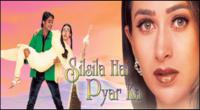
Staying Alive Full HD Movie Download

Yeh Gulistan Hamara Full HD Movie Download
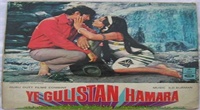
The Power Man- Khalnayak Full HD Movie Download
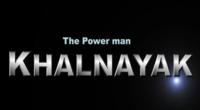
Aag Ka Dariya Full HD Movie Download
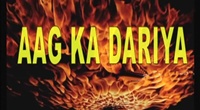
Sikandar (2009) Full HD Movie Download
.jpg)
Shaadi Se Pehle (2006) Full HD Movie Download
.jpg)
Beqasoor (1981) Full HD Movie Download
.jpg)
Odd Couple Full HD Movie Download
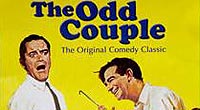
Krishnan Love Story Full HD Movie Download
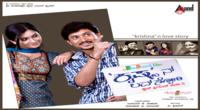
Kanteerava Full HD Movie Download
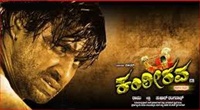
Rahasyam Full HD Movie Download
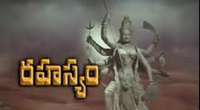
Bad Mans River Full HD Movie Download
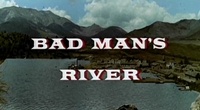
Asadhyudu Full HD Movie Download
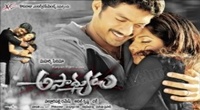
Maha Bali Full HD Movie Download
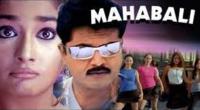
Blood Diamond Full HD Movie Download
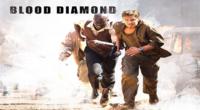
Coyamuthur Maaplaey Full HD Movie Download
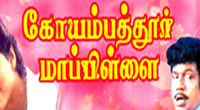
Josh Full HD Movie Download

Manavaraali Pelli Full HD Movie Download
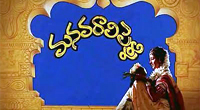
Devi Nagamma Full HD Movie Download
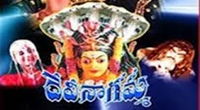
Dostana (2008) Full HD Movie Download
.jpg)
Download latest Movie from bollywood
- 1> baaghi 3
- 2> THE SKY IS PINK MOVIE FULL STORY AND REVIEW
- 3> Luka Chuppi
- 4> TO ALL THE BOYS I’VE LOVED BEFORE
- 5> Kabir Singh
- 6> Street Dancer 3D
- 7> Simmba
- 8> Gone Girl
- 9> The Girl Who Lived
- 10> Ludo
- 11> DILWALE DULHANIA LE JAYENGE
- 12> GUILTY
- 13> The Godfather
- 14> Adventures of Rusty
- 15> Sooryavanshi
- 16> Satyameva Jayate 2
- 17> Thappad
- 18> Bhool Bhulaiyaa 2
- 19> KGFChapter 2
- 20> Mardaani 2
- 21> Pinjar
- 22> Shivaji maharaj
- 23> Ek Villian 2
- 24> Hungama 2
- 25> Divergent
- 26> Mumbai Saga
- 27> The Internship
- 28> HIT (telugu)
- 29> Panga
- 30> The perfect date
- 31> 16 December
- 32> Gopala Gopala (Telugu)
- 33> Brahmastra
- 34> Gangubai Kathiawadi
- 35> Manmadhudu
- 36> Nenu local
- 37> Mahanati
- 38> Shatamanam bavathi
- 39> Lagaan
- 40> After
- 41> MOM
- 42> Shamshera
- 43> Raguvaran BTech
- 44> Khakee
- 45> The villain
- 46> OM
- 47> Mr. perfect
- 48> Bueatifull mind
- 49> Hichki
- 50> Gabbar Singh
- 51> Jogi
- 52> Before Sunrise
- 53> Before Sunset
- 54> Before Midnight
- 55> The Big Bull
- 56> Top Gun: Maverick
- 57> The Purge
- 58> The Sky is Pink
- 59> Laxmmi Bomb
- 60> Sadak 2
- 61> Sufna
- 62> Prithviraj
- 63> PK
- 64> Coolie No 1(2020)
- 65> Black Widow
- 66> Dear Zindagi
- 67> Dil Bechara
- 68> PHIR HERA PHERI
- 69> WAR
- 70> Dostana
- 71> RRR: Roudram Ranam Rudhiram
- 72> Maidan
- 73> Dabbang 3
- 74> Chhalaang
- 75> life as we know it
- 76> SherShaah
- 77> Sandeep Aur Pinky Faraar
- 78> Event Horizon
- 79> 83
- 80> Radhe: Your Most Wanted Bhai
- 81> Gunjan Saxena: The Kargil Girl
- 82> Mr India
- 83> Vivah
- 84> Anokha Bandhan
- 85> Ghost
- 86> Bhoot: Part One - The Haunted Ship
- 87> Haseen Dilruba
- 88> Laal Singh Chaddha
- 89> Qismat
- 90> Rajput
- 91> Drive
- 92> Dil Chahta Hai
- 93> Dil Ki Baazi
- 94> Dil Ka Rishta
- 95> Teesri Manzil
- 96> Dil
- 97> Love Aaj Kal
- 98> Khaali Peeli
- 99> Bunty Aur Babli 2
- 100> Atrangi Re
- 101> Gulabo Sitabo
- 102> Jodi
- 103> Suraj Pe Mangal Bhari
- 104> Deewana
- 105> Attack
- 106> Sardar Udham Singh
- 107> Toofan
- 108> THE LOVEBIRDS
- 109> Jersey
- 110> Ginny Weds Sunny
- 111> Thalaivi
- 112> Shiddat
- 113> Angels vs Zombies
- 114> Koi Mil Gya
- 115> Thank God
- 116> Bhuj: The Pride of India
- 117> Hum Aapke Hain Kaun
- 118> The Platform
- 119> Bird Box
- 120> Roohi Afzana
- 121> Torbaaz
- 122> Nikamma
- 123> World War Z
- 124> Extraction
- 125> Train to Busan
- 126> Life of Pi
- 127> SHAADI MEIN JROOR AANA
- 128> Himmat Aur Mehnat
- 129> To All The Boys: P.S. I Still Love You
- 130> Mimi
- 131> Good Newwz
- 132> Shubh Mangal Zyada Saavdhan
- 133> Raabta
- 134> Harry Potter and the Philosopher's Stone
- 135> Harry Potter and the Chamber of Secrets
- 136> Chhapaak
- 137> War of the Worlds
- 138> Harry Potter and the Prisoner of Azkaban
- 139> Harry Potter and the Goblet of Fire
- 140> MURDER MYSTERY
- 141> Shakuntala Devi
- 142> Bachchan Pandey
- 143> Jayeshbhai Jordar
- 144> Sheer Qorma
- 145> Saina
- 146> 'O' Pushpa I hate tears
- 147> Kedarnath
- 148> MS Dhoni The Untold Story
- 149> Chhichhore
- 150> Badhaai Ho
- 151> Unstoppable
- 152> Oz the Great And Powerful
- 153> The Girl on the Train
- 154> Haathi Mere Saathi 2020
- 155> The Conjuring: The Devil Made Me Do It
- 156> Gandhi Se Pehle Gandhi
- 157> The Song of Scorpions
- 158> Srimanthudu
- 159> Hello Guru Prema Kosame
- 160> Beauty and The Beast
- 161> Black Panther
- 162> Charlie and the Chocolate Factory
- 163> Bole Chudiyan
- 164> Fidaa
- 165> Duvvada Jagannadham
- 166> Bruce Lee: The Fighter
- 167> Hyper
- 168> Yaara
- 169> Red (2020)
- 170> Shivam
- 171> That Is Mahalakshmi
- 172> Nishabdham
- 173> Aashram 2020 web series
- 174> Laxmii
- 175> Mismatched
- 176> STUDENT OF THE YEAR 2
- 177> NAIL POLISH
- 178> Ramprasad Ki Tehrvi
- 179> KAAGAZ
- 180> 12 o Clock
- 181> The Power
- 182> bolo hau
- 183> Tribhanga
- 184> JAMUN
- 185> Madam Chief Minister
- 186> Maasaab
- 187> Aadhaar
- 188> Tanhaji
- 189> Bhaagi 3
- 190> Bhootnath
- 191> MALANG
- 192> Jai Mummy Di
- 193> Haathi Mere Saathi 2021
- 194> Shakeela
- 195> Unpaused
- 196> Annayya
- 197> Vamsoddharakudu
- 198> Mrugaraju
- 199> Narasimha Naidu
- 200> Sankranti
- 201> Manasu Maata Vinadhu
- 202> Anjaane
- 203> Apaharan
- 204> Bachke Rehna Re Baba
- 205> Bewafaa
- 206> Roohi
- 207> Radhe
- 208> Zindagi Khoobsoorat Hai
- 209> Yeh Mohabbat Hai
- 210> Yeh Kya Ho Raha Hai?
- 211> The Tomorrow War
- 212> DehradunDiary
- 213> Meri Shaadi Karaoo
- 214> Matruu Ki Bijlee Ka Mandola
- 215> No One Killed Jesica
- 216> Aag Ka Goola
- 217> Eight Million Dollars
- 218> Three Hundred
- 219> Cats and Dog
- 220> Decoy
- 221> Gold Rush
- 222> You Have Got Mail
- 223> Final Destination three
- 224> Tofan
- 225> Jungle
Request for Download movie Andrei Rublev Film
- Bollywood movies
- Latest Bollywood movies
- Download all bengali movies
- Download all bhojpuri movies
- Download all english movies
- Download all gujarati movies
- Download all hindi movies
- Download all kannada movies
- Download all malayalam movies
- Download all marathi movies
- Download all oriya movies
- Download all punjabi movies
- Download all tamil movies
- Download all telugu movies
- Bollywood action movies
- Bollywood adventure movies
- Bollywood animation movies
- Bollywood classical movies
- Bollywood comedy movies
- Bollywood crime movies
- Bollywood devotional movies
- Bollywood documentary movies
- Bollywood drama movies
- Bollywood family movies
- Bollywood fantasy movies
- Bollywood historical movies
- Bollywood history movies
- Bollywood horror movies
- Bollywood musical movies
- Bollywood mystery movies
- Bollywood mythological movies
- Bollywood patriotic movies
- Bollywood romance movies
- Bollywood romantic movies
- Bollywood sci-fi movies
- Bollywood social movies
- Bollywood spiritual movies
- Bollywood sports movies
- Bollywood suspense movies
- Bollywood thriller movies
- Bollywood war movies
- Hot actress list
- Hot gujarati actress list
- Hot tamil actress list
- Hot bhojpuri actress list
- Hot assam actress list
- Hot bihari actress list
- Hot jammu and kashmir actress list
- Hot gujarati actress list
- Hot haryana actress list
- Hot konkani actress list
- Hot marathi actress list
- Hot odia actress list
- Hot punjabi actress list
- Hot rajasthani actress list
- Hot kannada actress list
- Hot malayalam actress list
- Hot telugu actress list
- Hot tulu actress list
- Hot Actress list from Indian city
- Hot actress list from ahmedabad
- Hot actress list from alappuzha
- Hot actress list from bangalore
- Hot actress list from bangalore
- Hot actress list from bhopal
- Hot actress list from chandigarh
- Hot actress list from chennai
- Hot actress list from guwahati
- Hot actress list from hyderabad, india
- Hot actress list from indore
- Hot actress list from jaipur
- Hot actress list from kannur
- Hot actress list from kochi
- Hot actress list from kolkata
- Hot actress list from kollam
- Hot actress list from kottayam
- Hot actress list from kozhikode
- Hot actress list from lucknow
- Hot actress list from madurai
- Hot actress list from mangalore
- Hot actress list from mumbai
- Hot actress list from mysore
- Hot actress list from new delhi
- Hot actress list from patna
- Hot actress list from pune
- Hot actress list from thiruvananthapuram
- Hot actress list from thrissur
- Hot actress list from tiruchirappalli
- Hot actress list from vijayawada
- Hot actress list from visakhapatnam
- All Bollywood Movies
- Bollywood Celeb
- >Art Director
- >Audiography
- >Background Music
- >Banner
- >Choreographer
- >Cinematographer
- >Costume Designer
- >Dialogue Writer
- >Director
- >Distributor
- >Editor
- >Executive Producer
- >Hair Stylist
- >Lyricist
- >Music Director
- >Photographer
- >Playback Singers
- >Presenter
- >Producer
- >Production Company
- >Production Designer
- >Screenplay
- >Singer
- >Sound
- >Actor
- >Story Writer
- >Studio
- >Video Director
- >Miscellaneous
- >Publicity (pro)
- >Web Creator
- >Production Labs
- >Publicity Design
- >Publicity Stills
- >Writer
- >Miscellaneous Artists
- >Visual Effects
- >Reporter
- >Music Company
- >Shooting Studios
- >Picturised On
- >Line Producer
- >Co Producer
- >Asst Director
- >Casting Director
- >Cinematography
- >Choreography
- >Dialouge
- >Editing
- >Lyrics
- >Music
- >Story
- >Playback Singer Female
- >Playback Singer Male
- >Actor In A Comic Role (male/female)
- >Child Artiste
- >Ensemble Cast
- >Actor Popular Choice (male)
- >Actor Popular Choice (female)
- >Sa Re Ga Ma Pa Song Of The Year
- >Actor In Supporting Role
- >Actress In Supporting Role
- >Actor In Leading Role
- >Art Direction
- >Actress In Leading Role
- >Sound Recording
- >Costume Design
- >Special Effects
- >Action
- >Actor In A Negative Role
- >Lifetime Achievement Award
- >Cinematic Exellence (director)
- >Cinematic Exellence (male)
- >Cinematic Exellence (female)
- >International Male Icon
- >International Female Icon
- >Actor In A Supporting Role (male)
- >Actor In A Supporting Role (female)
- >Actor In A Comic Role
- >Playback Singer (male)
- >Playback Singer (female)
- >Most Promising Debut (female)
- >Most Promising Debut (male)
- >Most Promising Director
- >Sound Design
- >Lifetime Jodi
- >Marketed Film
- >Jury Award For Best Actor
- >Jury Award For Best Actress
- >Jury Award For Best Film
- >Jury Award For Best Director
- >Playback Singer(male)
- >Lifetime Acheivement Award (male)
- >Excellence Award
- >Jodi Award
- >Performer Of The Year
- >Presented By
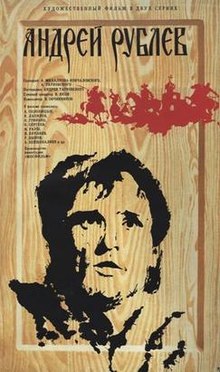 Story of movie Andrei Rublev Film :
Story of movie Andrei Rublev Film : 